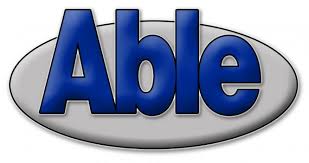记忆方法
一个(a)伯乐(ble)
一个很有能力的(able)伯乐
中文词源
able 有能力的
词源同habit,习惯,来自词根hab,居住,拥有,能力。与后缀-able词义几乎完全重合。
英语词源
- able
-
able: [14] Able and ability both come ultimately from the Latin verb habēre ‘have’ or ‘hold’. From this the Latin adjective habilis developed, meaning literally ‘convenient or suitable for holding on to’, and hence in more general terms ‘suitable’ or ‘apt’, and later, more positively, ‘competent’ or ‘expert’. It came into English via Old French, bringing with it the noun ablete ‘ability’. This was later reformed in English, on the model of its Latin source habilitās, to ability.
=> habit - able (adj.)
- early 14c., from Old French (h)able (14c.), from Latin habilem, habilis "easily handled, apt," verbal adjective from habere "to hold" (see habit). "Easy to be held," hence "fit for a purpose." The silent h- was dropped in English and resisted academic attempts to restore it 16c.-17c. (see H), but some derivatives (such as habiliment, habilitate) acquired it via French.
Able-whackets - A popular sea-game with cards, in which the loser is beaten over the palms of the hands with a handkerchief tightly twisted like a rope. Very popular with horny-fisted sailors. [Smyth, "Sailor's Word-Book," 1867]
权威例句
- 1. Chantal was lucky to be able to salvage her career.
- 尚塔尔能保住她的事业算是走了运。
- 2. The RAF recognized him as an out-standingly able engineer.
- 英国皇家空军表彰他是一名非常能干的机械师。
- 3. Anton was able to transfer from Lavine's to an American company.
- 安东成功地从拉文调到了一家美国公司.
- 4. He conjectured that some individuals may be able to detect major calamities.
- 他猜测说有些人也许能够察觉重大灾难。
- 5. The government have not been able to turn today'sdemonstration to their advantage.
- 政府未能把今天的游行示威转为己用。

